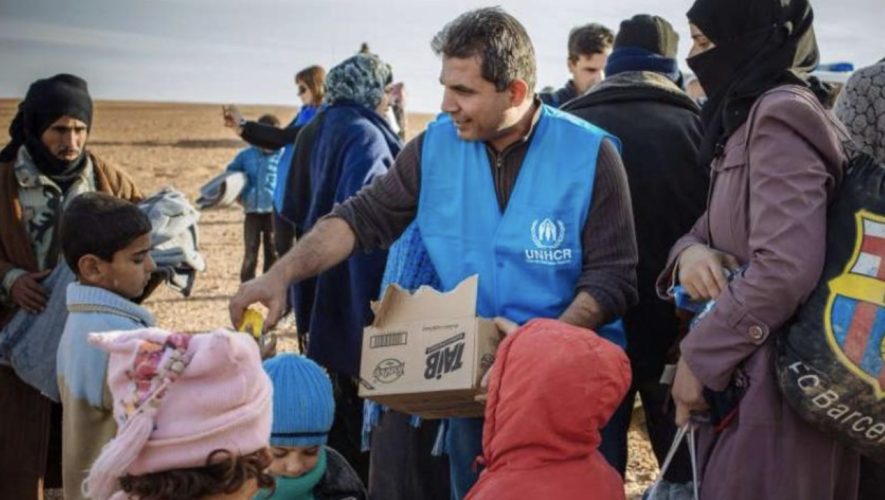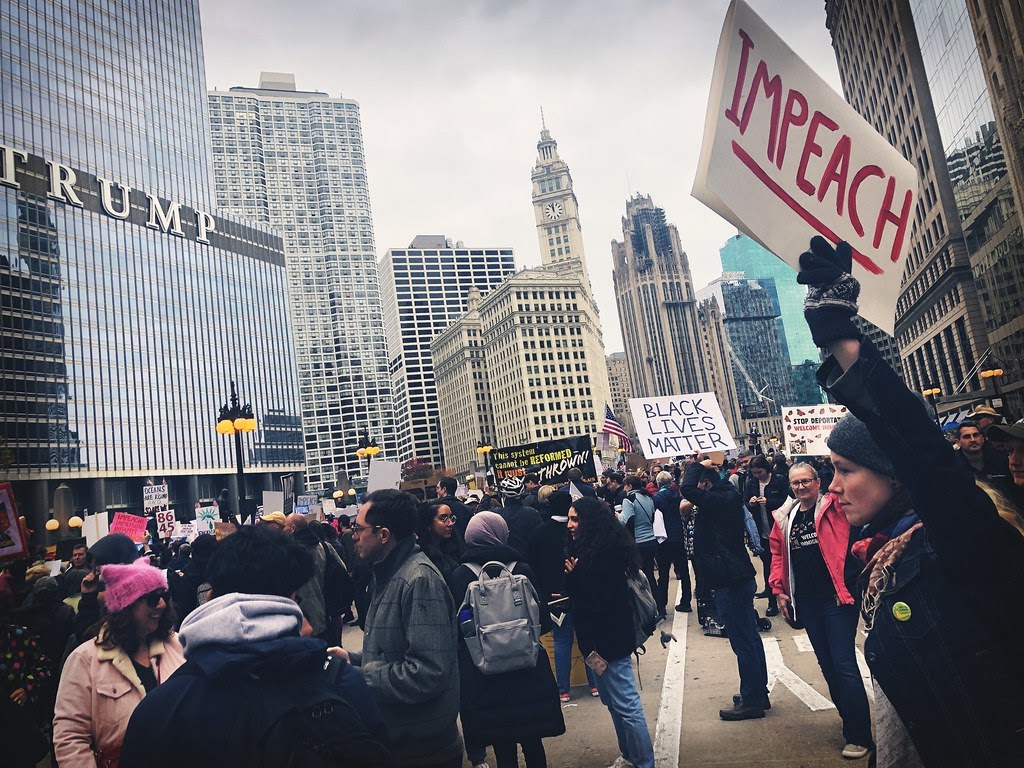In 1917, President Woodrow Wilson declared that the United States’ duty as a leader on the global stage was to “make the world safe for democracy.” His bold vision set a powerful precedent for US intervention globally while defining an era in which the United States could position itself as a moral force in international affairs.
More than a century later, President Donald Trump introduced his America First doctrine, marking a sharp departure from Wilson’s legacy. While President Trump justifies his moves under the guise of improved government efficiency, his administration’s retreat from multilateral collaboration undermines US commitments to global humanitarian action.
As the Trump Administration continues to divest from international humanitarian aid programs, its disengagement coincides with an expanded willingness to fund other strategic partnerships abroad. Rather than distributing aid based on humanitarian need, the U.S. increasingly prioritizes nations that serve its geopolitical interests while turning a blind eye to crises that demand attention.
During a time when global crises demand urgent attention, the US must revisit its international aid portfolio based on need, not strategic advantage. Above all, the US must begin to place human welfare above geopolitical gain to bring forth President Wilson’s vision of the US as a kinder global leader.
The Paradox of U.S. International Aid
The establishment of the U.S. Agency for International Development (USAID) in 1961 seemed to demonstrate the United States’ commitment to the global good. Its earliest projects have supported public health initiatives in rural Africa, funded water access projects in Indonesia, and spearheaded support initiatives to war-torn Syria. Decades later, the United States has regrettably fallen short on its promises to equitably support struggling nations across the world.
Now, while certain countries receive extensive support from the United States, others remain ignored. The paradox of US international aid lies in its bias towards countries of strategic interest. While certain nations receive aid under the notion of strategic interest, those most at risk receive comparatively little attention. To this, the story of Yemen becomes a paramount example.
Since 2014, civil war has thrown Yemen into continuous conflict. Violence caused by the war between the Yemeni government and Houthi insurgents along the Red Sea have driven the country into a humanitarian crisis. Over 55% of Yemen’s groundwater reservoirs are deemed unsafe for drinking. Simultaneously, supply chain disruptions caused by the war have made it more difficult for water to be brought in.
Despite an urgent need for international support, the United States has decided to discontinue aid shipments to Yemen as part of the Department of Government Efficiency’s (DOGE) efforts to downsize national spending. Meanwhile, violence caused by the war continues to threaten the safety of Yemen’s rural communities, risking irreversible humanitarian collapse. Today, these withdrawals highlight a broader pattern of negligence.
Beyond Yemen, countries like Syria also continue to struggle against recent USAID funding cuts. Following the recent establishment of the Ahmad al-Shara government after the collapse of an authoritative Assad regime, the Trump Administration’s orders to discontinue Syrian aid jeopardizes Syria’s fragile recovery. Regrettably, while the US continues to champion democracy and stability abroad, it withdraws support from nations in pursuit of those ideals the moment they fall outside its strategic interests.
As DOGE pushes divestments from countries like Yemen and Syria, the Department of War (DOW) concurrently increases its pledges to provide military aid to others. Notably, the United States continues to channel more than $174 billion in aid to Israel to support its ongoing war efforts. Aid to Israel includes both direct economic support funds as well as loan guarantees on what is essentially a blank check to the country’s military leaders.
Similarly, Taiwan has also received preferential treatment due to its semiconductor production facilities. In an era of rapid technological advancement, Taiwan has achieved near supremacy in terms of global chip production. In 2024 alone, Taiwan produced over 90% of the world’s semiconductors. In order to defend American access to Taiwanese chips, the US has been willing to deploy defense missions to strengthen Chinese deterrence in the Taiwan Strait.
By directing aid only to nations that serve its geopolitical interests, the United States has made it abundantly clear that it is more concerned with its own self-interest than humanitarian crises. Under this framework, countries with little strategic value, like Yemen and Syria, will see support withdrawn amidst a time of catastrophic need, while allies critical to U.S. security and economic interests, such as Israel and Taiwan, receive robust support.
To maintain credibility as a global leader, the United States must pair its military and economic commitments with greater efforts to support humanitarian projects. These renewed efforts will shift the narrative away from the weaponization of humanitarian aid and towards a new era of American integrity and genuine global responsibility.
What must change
As leaders on the global stage, the United States has a moral responsibility to invest in global humanitarian aid programs. This starts by intentionally collaborating with multilateral organizations such as the United Nations (UN).
Despite President Trump’s most recent UN address undermining international cooperation, the United States’ continued involvement in multilateral humanitarian commitments are key to maintaining humanitarian equality beyond our borders. Following the United Nation’s recent reveal of the UN80 initiative—outlining new plans to restructure UN efficiency—partnerships between the United States and the UN will continue to be the most efficient way for American aid to be funneled into the regions that need it most.
The world is watching. If the United States hopes to maintain its place at the top of the world order, leading as a country that champions the values of democracy, justice, and equality, it must redefine its priorities and place human dignity above geopolitical gain.



